If the year 2018 was about Kento Momota’s comeback then 2019 was the period where he asserted his dominance on the circuit, in an emphatic manner at that.
The Tokyo Olympics later this year offers the Japanese star the chance to not only win the most coveted medal – and one of the few missing from his oeuvre – but also to make amends for what is palpably the most bitter chapter of his professional career.
By Bikash Mohapatra. Photos: Badmintonphoto
The first major tournament of the 2020 BWF World Tour, the Malaysia Masters, is over and the season has begun exactly in the same manner as 2019 had ended. Kento Momota, who won the final tournament of last year, has emerged triumphant at the season opener in Kuala Lumpur.
The Japanese star, who had lost in the opening round of this Super 500 event last season, had little trouble outsmarting Viktor Axelsen in the final, the 24-22, 21-11 verdict being his 13th straight win over the Dane. While starting the year with a win is always satisfying, it is his win in the quarter-final at the Malaysian capital that could have given Momota a sense of satisfaction. One may think, how can beating someone ranked outside the top 20 and promoted from qualifiers be satisfying?
Think again!
Huang Yuxiang (pictured left) caused what was undoubtedly the biggest upset of the 2019 BWF World Tour. The Chinese journeyman, 27 later this month, has been playing for quite a few years without any performance worthy of a mention. However, his second round win at the Indonesia Open Super 1000 last July ensured Huang made the headlines for once. He had shocked the World #1 player.
While Huang, who upset Anthony Ginting and Jan Jorgensen en route to the last eight in Malaysia, again took the Japanese to the distance, he couldn’t make it count on this occasion. However, his defeat of 2019 was one of the only six – in 73 matches – that Momota suffered in the whole year and without doubt the most significant of the lot. It prevented the Japanese player from defending his title in Jakarta. As things panned out, it remained the only title from 2018 that Momota failed to defend. The 24-year-old successfully defended his five other titles from the previous year.
If 2018 was a year when he announced his return to the circuit in an emphatic manner, then it was his ‘sophomore’ season where the Japanese ace asserted his dominance on the tour. And it was dominance in the real sense of the term. An enviable sophomore season, so to speak.
Momota ruled the men’s singles discipline in 2019, winning a record 11 titles, a haul that included second straight titles at both the World Championships and the Asia Championships, and a maiden triumph at the prestigious All England Open. He was the undisputed #1 for the entire year.
The 25-year-old marked his remarkable season by fighting back from a game down to defeat Indonesia’s Ginting – the only player to have three or more wins against him in the last two years – in the decider at the BWF World Tour Finals in Guangzhou, China. No man, not even the legendary duo of Lee Chong Wei or Lin Dan, had won as many singles titles in a season. The Malaysian’s 10 wins in 2010 (one actually won in January 2011) was the record that the Japanese left-hander surpassed. The winner’s cheque in Guangzhou (worth US$120,000) also made Momota the first player ever to win half-a-million American dollars in prize money in a calendar year – his total for the year being USD 536,900. No points for guessing Momota was named the BWF Male Player of the Year for 2019.
Momota seems to have carried forward his momentum into the New Year. While he was self-admittedly “not in the perfect condition” coming into the Malaysia Masters, he hardly broke a sweat in his title-winning turn.
Momota’s win in Kuala Lumpur is a significant result not only because it indicates the continuation of his form from the previous two seasons but also in another context, the fact that this is an Olympic year. That Tokyo is hosting the quadrennial extravaganza adds to the emotional quotient.
It was a few months before the last Olympic Games in Rio de Janeiro that Momota faced what can be termed as the ultimate humiliation for any sportsperson. He received a suspension (from April 2016 to May 2017) for gambling.
A fast-rising Momota was at that point considered one of Japan’s best bets for a medal in Rio. Instead, he was altogether expelled from the Japanese contingent. An elaborate and emotional apology notwithstanding, the player has retained a guilty conscience, guilty of having belied the expectations of his nation…of a sense of betrayal for the ever-supporting fans.
“I still feel remorse and cannot be sorry enough for what happened. I’d be lying if I said I don’t think about Olympics,” he told the Olympic Channel late last year.
“I troubled a lot of people last time. For those who supported me when I wasn’t playing, I want to repay them somehow at Tokyo”.
To his credit, the player has put the controversial episode behind him and since made an emphatic comeback, having won every major honour he’s had a shot at, apart from the Asian Games. The Olympics this year not only provides Momota a shot at the most important missing title but also at redemption.
Momota has understandably underlined the Tokyo Games as his main focus this year while being palpably vocal about his desire to make an impression and redeem himself in front of the home fans. He has always expressed his gratitude for their continued and unconditional support and given them a lot to cheer.
Players complaining about BWF’s rigorous scheduling have become the norm over the last two years. Keeping the fatigue factor and injury in mind (along with his main target) Momota has already started being circumspect as regards his schedule, rather the number of tournaments he plays ahead of the Summer Games. While he did feature in Kuala Lumpur, he pulled out of the Indonesia Masters – a Super 500 event where he was the beaten finalist in 2019 – in the following week.
Now that he has injured himself in an accident hours after his triumph in Malaysia, Momota won’t be back on court till the All England Championships in March, thereby missing next month’s Asian Team Championships. While the player suffered a nasal bone facture, and multiple laceration wounds, there are no major injuries to worry about, and the world #1 should be back practising in about four weeks time.
Truth be told, if he remains injury free, remains focused – and, of course, if he doesn’t get entangled in another controversy – Momota will be the player to beat at Tokyo 2020. There will be the pressure of expectations for sure. That said, mental toughness and fortitude are among the biggest strengths of this player.
None of the current lot of players can stake their claim for the Olympic title as effectively as the 25-year-old can. The gold medal at Tokyo 2020 is Momota’s for the taking. Millions of Japanese fans have begun to dream of gold. The country’s media has already started making claims.
In a few months we will see if Momota is able to justify his status as “favourite”, make amends for that 2016 fiasco and appease an entire nation.
![An inspiring ‘sophomore’…and a shot at redemption If the year 2018 was about Kento Momota’s comeback then 2019 was the period where he asserted his dominance on the circuit, in an emphatic manner at that. The Tokyo […]](http://www.badzine.net/wp-content/uploads/ngg_featured/20191110_1743_FuzhouChinaOpen2019_BPYL8019_rotator.jpg)
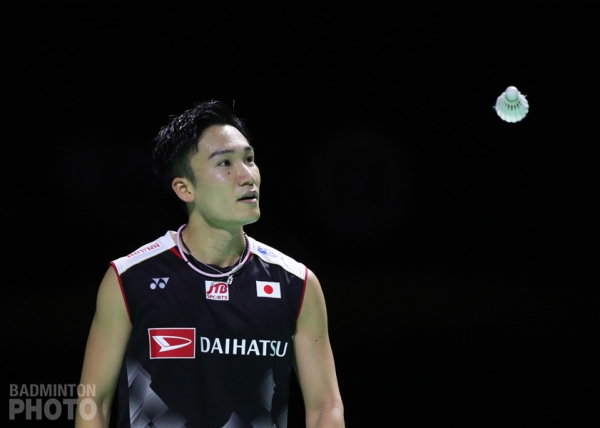
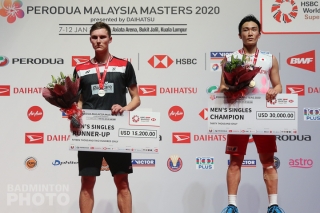
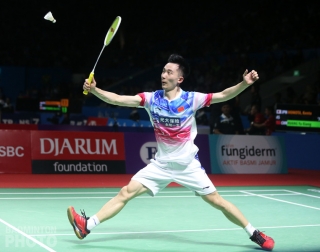
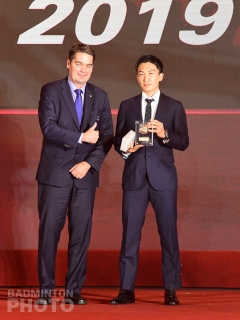
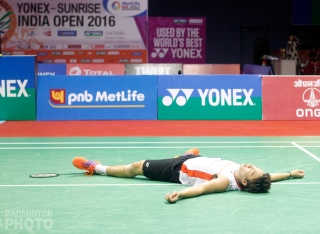

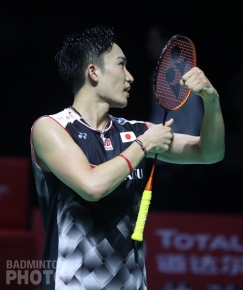
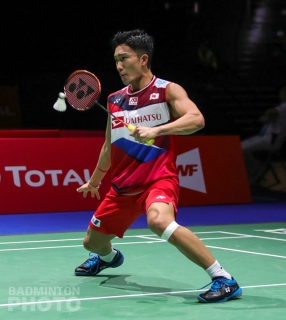
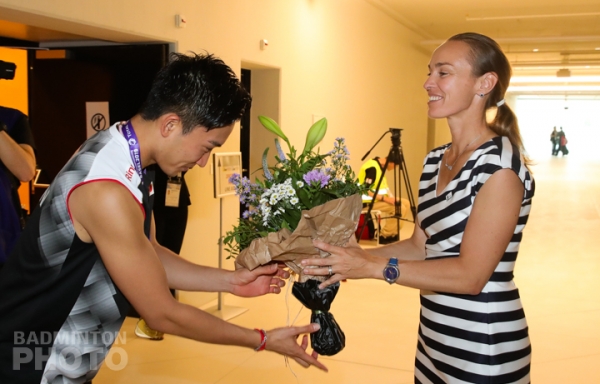

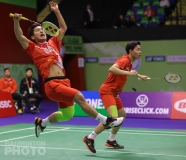
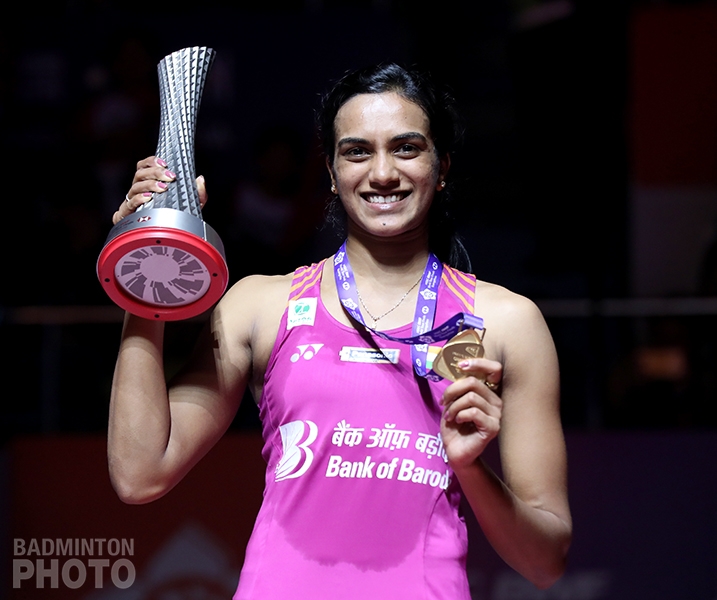



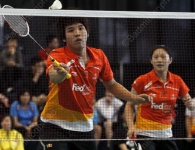
Leave a Reply